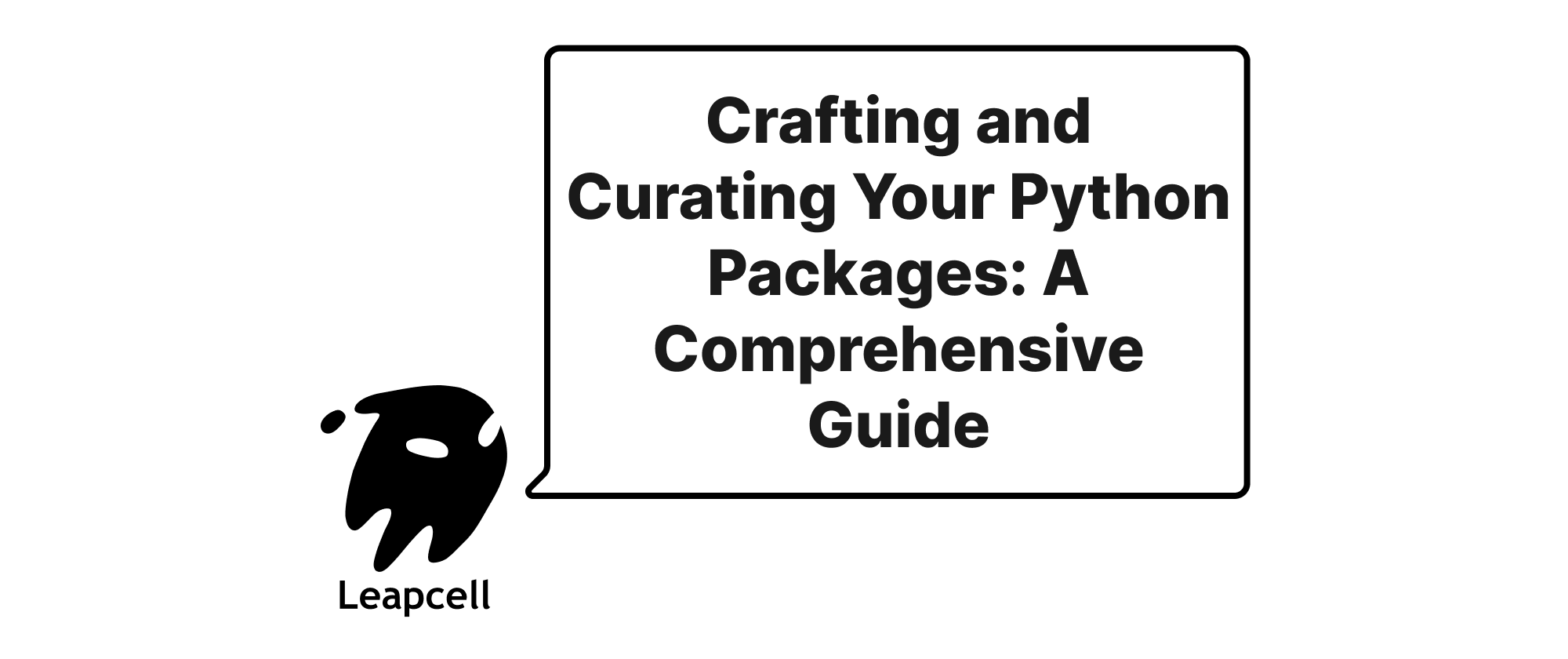Navigating Go's Standard Library: Essential Packages for Everyday Programming
Emily Parker
Product Engineer · Leapcell

Go's standard library is a cornerstone of its strength, offering a rich set of pre-built functionalities that streamline development. For many common tasks, you'll find elegant and efficient solutions bundled right into the language itself. This article explores six fundamental packages every Go developer should be familiar with: fmt, os, io, time, strings, and strconv. We'll explore their core features and demonstrate their usage with practical examples.
1. fmt: Formatted I/O
The fmt package implements formatted I/O (input/output) with functions analogous to C's printf and scanf. It's indispensable for printing messages to the console, formatting strings, and reading user input.
Key functions:
fmt.Println(): Prints arguments followed by a newline.fmt.Printf(): Formatted printing, using verbs like%s(string),%d(decimal integer),%f(floating-point number),%v(value, default format),%T(type), etc.fmt.Sprintf(): Formats according to a format specifier and returns the resulting string.fmt.Scan(),fmt.Scanln(),fmt.Scanf(): Read input from standard input.
Example:
package main import "fmt" func main() { name := "Alice" age := 30 salary := 50000.75 // Using Println for simple output fmt.Println("Hello, Go!") fmt.Println("Name:", name, "Age:", age) // Using Printf for formatted output fmt.Printf("User: %s, Age: %d years old, Salary: %.2f USD\n", name, age, salary) // Using Sprintf to format a string without printing message := fmt.Sprintf("Welcome, %s! Your ID is %d.", name, 123) fmt.Println(message) // Reading input (basic example) var city string fmt.Print("Enter your city: ") fmt.Scanln(&city) fmt.Println("You live in:", city) }
2. os: Operating System Interaction
The os package provides a platform-independent interface to operating system functionality. This includes file operations, environment variables, command-line arguments, process management, and more.
Key functionalities:
- File and Directory Operations:
os.Create(),os.Open(),os.ReadFile(),os.WriteFile(),os.Remove(),os.Mkdir(),os.Rename(). - Environment Variables:
os.Getenv(),os.Setenv(). - Command-line Arguments:
os.Args. - Process Information:
os.Getpid(),os.Getuid(). - Exit Status:
os.Exit().
Example:
package main import ( "fmt" "io/ioutil" "os" ) func main() { // Accessing command-line arguments fmt.Println("Command-line arguments:", os.Args) if len(os.Args) > 1 { fmt.Println("First argument:", os.Args[1]) } // Creating and writing to a file fileName := "example.txt" err := ioutil.WriteFile(fileName, []byte("Hello from Go!"), 0644) if err != nil { fmt.Println("Error writing file:", err) return } fmt.Println("File created:", fileName) // Reading from a file content, err := ioutil.ReadFile(fileName) if err != nil { fmt.Println("Error reading file:", err) return } fmt.Println("File content:", string(content)) // Getting and setting environment variables os.Setenv("MY_VARIABLE", "GoLang_Rocks") envVar := os.Getenv("MY_VARIABLE") fmt.Println("MY_VARIABLE:", envVar) // Removing a file defer func() { // Ensure cleanup even if errors occur err := os.Remove(fileName) if err != nil { fmt.Println("Error removing file:", err) } else { fmt.Println("File removed:", fileName) } }() }
Note: ioutil is deprecated in newer Go versions. It's recommended to use functions directly from os and io packages for file operations (e.g., os.WriteFile, os.ReadFile).
3. io: Basic I/O Primitives
The io package provides basic interfaces to I/O primitives, primarily focusing on Reader and Writer interfaces. These interfaces are fundamental to how Go handles streams of data, allowing for highly flexible and decoupled I/O operations.
Key interfaces and functions:
io.Reader: Interface for reading data.io.Writer: Interface for writing data.io.Copy(): Copies data from aReaderto aWriter.io.ReadAll(): Reads all data from anio.Readeruntil EOF and returns it as a byte slice.
Example:
package main import ( "bytes" "fmt" "io" "os" "strings" ) func main() { // Example 1: Copying from a string to a buffer reader := strings.NewReader("This is some text to be read.") var buffer bytes.Buffer n, err := io.Copy(&buffer, reader) if err != nil { fmt.Println("Error copying:", err) return } fmt.Printf("Copied %d bytes: %s\n", n, buffer.String()) // Example 2: Reading from a file (io.Reader) to standard output (io.Writer) file, err := os.Open("example.txt") // Assuming example.txt exists from os package example if err != nil { fmt.Println("Error opening file:", err) return } defer file.Close() fmt.Println("Content of example.txt via io.Copy to Stdout:") _, err = io.Copy(os.Stdout, file) if err != nil { fmt.Println("Error copying to stdout:", err) } // Example 3: Reading all content into a byte slice r := strings.NewReader("Another string to read fully.") allContent, err := io.ReadAll(r) if err != nil { fmt.Println("Error reading all:", err) } fmt.Printf("ReadAll content: %s\n", allContent) }
4. time: Time and Duration
The time package provides functionality for measuring and displaying time, including parsing and formatting, durations, and tickers. It's crucial for anything involving dates, times, and scheduling.
Key types and functions:
time.Time: Represents a specific point in time.time.Duration: Represents the elapsed time between two instants.time.Now(): Returns the current local time.time.Parse(): Parses a formatted string into atime.Timeobject.time.Format(): Formats atime.Timeobject into a string.time.Since(): Calculates the duration since a given time.time.Sleep(): Pauses the current goroutine for a specified duration.time.Stamp,time.RFC3339, etc.: Predefined layouts for formatting.
Example:
package main import ( "fmt" "time" ) func main() { // Get current time now := time.Now() fmt.Println("Current time:", now) // Formatting time fmt.Println("Formatted (RFC3339):", now.Format(time.RFC3339)) fmt.Println("Formatted (Custom):", now.Format("2006-01-02 15:04:05 Mon")) // MM/DD/YYYY is 01/02/2006 for layout // Parsing time from a string timeString := "2023-10-26T10:30:00Z" parsedTime, err := time.Parse(time.RFC3339, timeString) if err != nil { fmt.Println("Error parsing time:", err) return } fmt.Println("Parsed time:", parsedTime) // Time arithmetic and durations tomorrow := now.Add(24 * time.Hour) fmt.Println("Tomorrow:", tomorrow) duration := tomorrow.Sub(now) fmt.Println("Duration until tomorrow:", duration) // Sleeping (pausing execution) fmt.Println("Sleeping for 2 seconds...") time.Sleep(2 * time.Second) fmt.Println("Awake!") // Measuring execution time start := time.Now() sum := 0 for i := 0; i < 1000000; i++ { sum += i } elapsed := time.Since(start) fmt.Printf("Calculation took %s\n", elapsed) }
5. strings: String Manipulation
The strings package provides a rich set of functions for manipulating UTF-8 encoded strings. It's a go-to package for everything from searching and replacing to splitting and joining strings.
Key functions:
strings.Contains(): Checks if a substring is present.strings.HasPrefix(),strings.HasSuffix(): Checks for prefixes and suffixes.strings.Index(),strings.LastIndex(): Finds the index of a substring.strings.Replace(),strings.ReplaceAll(): Replaces occurrences of a substring.strings.Split(),strings.Join(): Splits a string into a slice of strings, and joins a slice of strings into a single string.strings.ToLower(),strings.ToUpper(): Converts case.strings.TrimSpace(),strings.TrimPrefix(),strings.TrimSuffix(): Removes leading/trailing characters.
Example:
package main import ( "fmt" "strings" ) func main() { text := " Go programmers love Go " searchTerm := "love" // Basic checks fmt.Printf("Contains '%s'? %t\n", searchTerm, strings.Contains(text, searchTerm)) fmt.Printf("Has prefix ' Go'? %t\n", strings.HasPrefix(text, " Go")) fmt.Printf("Has suffix 'Go '? %t\n", strings.HasSuffix(text, "Go ")) // Indexing fmt.Printf("Index of 'love': %d\n", strings.Index(text, searchTerm)) // Replacing newText := strings.Replace(text, "Go", "Python", 1) // Replace first occurrence fmt.Println("Replaced (first):", newText) allReplacedText := strings.ReplaceAll(text, "Go", "Rust") // Replace all occurrences fmt.Println("Replaced (all):", allReplacedText) // Trimming trimmedText := strings.TrimSpace(text) fmt.Println("Trimmed:", trimmedText) trimmedPrefix := strings.TrimPrefix(text, " Go") fmt.Println("Trimmed prefix:", trimmedPrefix) // Case conversion fmt.Println("Uppercase:", strings.ToUpper(trimmedText)) fmt.Println("Lowercase:", strings.ToLower(trimmedText)) // Splitting and Joining sentence := "apple,banana,orange" fruits := strings.Split(sentence, ",") fmt.Println("Split fruits:", fruits) joinedFruits := strings.Join(fruits, " and ") fmt.Println("Joined fruits:", joinedFruits) }
6. strconv: String Conversions
The strconv package provides functions for converting between strings and basic data types like integers, floating-point numbers, and booleans. It's essential when interacting with user input, configuration files, or external systems that communicate with string representations of data.
Key functions:
strconv.Atoi(): Converts a string to an integer.strconv.Itoa(): Converts an integer to a string.strconv.ParseInt(): Parses a string into an integer with a specified base and bit size.strconv.ParseFloat(): Parses a string into a floating-point number.strconv.ParseBool(): Parses a string into a boolean.strconv.FormatInt(),strconv.FormatFloat(),strconv.FormatBool(): Formats primitives to strings.
Example:
package main import ( "fmt" "strconv" ) func main() { // String to Integer strInt := "123" numInt, err := strconv.Atoi(strInt) if err != nil { fmt.Println("Error converting string to int:", err) } else { fmt.Printf("String '%s' to int: %d (type: %T)\n", strInt, numInt, numInt) } // Integer to String intVal := 456 strVal := strconv.Itoa(intVal) fmt.Printf("Int %d to string: '%s' (type: %T)\n", intVal, strVal, strVal) // String to Float strFloat := "3.14159" numFloat, err := strconv.ParseFloat(strFloat, 64) // 64 for float64, 32 for float32 if err != nil { fmt.Println("Error converting string to float:", err) } else { fmt.Printf("String '%s' to float: %f (type: %T)\n", strFloat, numFloat, numFloat) } // Float to String floatVal := 2.71828 strFloatVal := strconv.FormatFloat(floatVal, 'f', 4, 64) // 'f' for decimal, 4 decimal places, float64 fmt.Printf("Float %f to string: '%s' (type: %T)\n", floatVal, strFloatVal, strFloatVal) // String to Boolean strBoolTrue := "true" boolTrue, err := strconv.ParseBool(strBoolTrue) if err != nil { fmt.Println("Error converting 'true' to bool:", err) } else { fmt.Printf("String '%s' to bool: %t (type: %T)\n", strBoolTrue, boolTrue, boolTrue) } strBoolFalse := "0" // "0", "f", "F", "false", "FALSE", "False" are parsed as false boolFalse, err := strconv.ParseBool(strBoolFalse) if err != nil { fmt.Println("Error converting '0' to bool:", err) } else { fmt.Printf("String '%s' to bool: %t (type: %T)\n", strBoolFalse, boolFalse, boolFalse) } // Boolean to String boolVal := true strBoolVal := strconv.FormatBool(boolVal) fmt.Printf("Bool %t to string: '%s' (type: %T)\n", boolVal, strBoolVal, strBoolVal) // Parsing an integer with a specific base hexStr := "FF" hexVal, err := strconv.ParseInt(hexStr, 16, 8) // Base 16, 8-bit integer if err != nil { fmt.Println("Error parsing hex:", err) } else { fmt.Printf("Hex string '%s' (base 16) to int8: %d (type: %T)\n", hexStr, hexVal, hexVal) } }
Conclusion
The fmt, os, io, time, strings, and strconv packages represent a fundamental toolkit for Go developers. Mastering their functionalities allows you to efficiently handle formatted output, interact with the operating system, manage data streams, work with dates and times, manipulate strings, and convert data types. By leveraging these core standard library components, you can write robust, readable, and idiomatic Go programs for a wide range of applications. As you delve deeper into Go, you'll discover how these packages are often the building blocks for more complex and specialized tasks.


